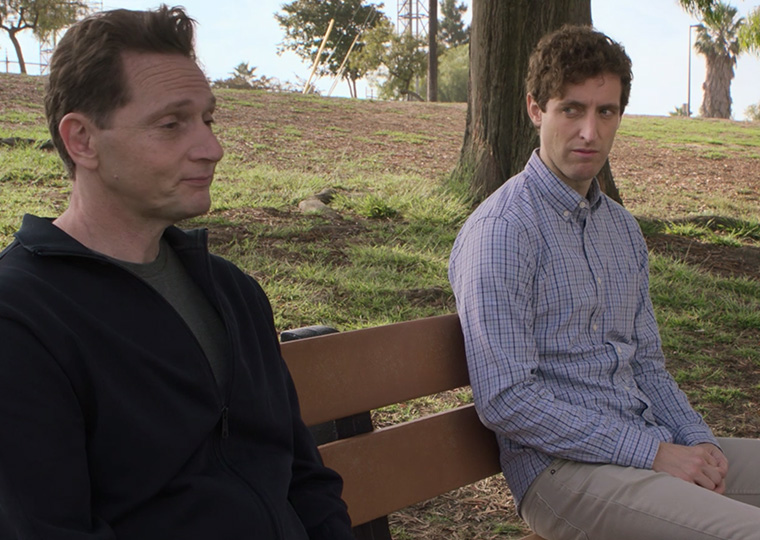Positive views on, say, a social policy are more easily suppressed than negative ones
Memory plays a significant role in shaping opinion about how to navigate the future. Past research has established that when tasked with evaluating the merits of a potential policy, we are prone to tap into our memory bank in search of similar situations that are then used to inform the decision at hand.
In a paper published in the Journal of Experimental Social Psychology, UCLA Anderson’s Sherry Jueyu Wu and Princeton’s Alin Coman, who has collaborated on multiple papers that studied “induced forgetting,” offer evidence that the seemingly logical act of reasoning based on experience is susceptible to manipulation. In two experiments that leveraged a real-world public policy initiative, the authors find that inducing stakeholders to focus on irrelevant information can reduce their recall of relevant information. That, in turn, can muddy the decision-making waters.
Opt In to the Review Monthly Email Update.
Public policy is, by its nature, complex and involves nuance and ambiguity, meaning communicating its merits is already a challenge with a public accustomed to sound bites and simple slogans. Case-based reasoning — using past experience from a similar episode to make a present decision — is widespread among actual policymakers; the method was used around troop deployment in Vietnam and ahead of the 1991 Iraq invasion, for instance. Politicians and other persuaders also invoke case-based reasoning in selling — or condemning — policy proposals to the public.
The Malleability of Recall
In one experiment, more than 250 participants read a description of the real-world Millennium Villages Project that was deployed across Africa between 2005 and 2015 to combat poverty. All participants were told there remains much debate about the effectiveness of the program, with the consensus that it had positive impact in some villages but in others led to systemic failures.
Participants were presented with two case studies from the Millennium Villages Project; one that was framed as having a positive impact (higher agricultural yields and improved water supply) and one that had a negative impact (worse soil erosion and social divisions). All participants were given two critical (relevant) insights about each village and one noncritical (irrelevant) piece of information.
All participants then listened to a three-minute radio interview with an expert, but the content of the staged interviews varied. Some participants heard the expert discussing the case study that had a positive outcome. Others heard the expert discuss the case study that backfired. In both instances, however, that expert only discussed the irrelevant issue for that village. (A third group of participants served as the control; their radio interview had nothing to do directly with the case studies.)
Participants were told to pay attention, as their recall of what the expert discussed would be tested. This listening exercise tapped into the established psychological theory of “retrieval practice” in which our memory is buttressed by exercises that reinforce/drill specific information.
The key to this experiment is that the expert discussing each village project only mentioned the irrelevant issue. That is, the participants were primed to focus on and remember something irrelevant to the actual poverty intervention. Implicit in that experiment design was the insertion of a “forgetting paradigm” of the critical pieces of information, which the expert did not discuss.
Wu and Coman tested participants’ recall of both the relevant and irrelevant info. There was slower recall of relevant features among participants who listened to an expert talk about the village that had a successful outcome. But there was no “forgetting” falloff of the relevant information among participants who heard an expert talk about the village with the negative outcome.
That dichotomy jibes with other research that suggests we’re prone to hold tighter to negative information as well as the Nobel-Prize-winning “loss aversion” theory by Amos Tversky and Daniel Kahneman.
How Manipulation of Recall Affects Decisions
The researchers then proceeded to explore the extent to which this manipulation of memory recall might impact decision making. They used the same Millennium Villages Project case studies, but in this study, nearly 300 participants were also presented with a third village that they were told was a candidate for the program and were tasked with weighing in on whether it would be a good candidate for the intervention.
This prospective village was described with four critical features: Borrowing two features from the “success” case study in the earlier experiment and two features from the “failure” case study was designed to prime participants to view this new village as equally similar to each of the two test cases.
From there, the experiment followed the same setup as their earlier study. Some participants heard a radio interview that focused on the irrelevant info for the successful case study, and others got three minutes on the irrelevant info attached to the case study that had the negative outcome.
Participants then weighed in on a scale of 1 to 7 whether they thought the program would work in the proposed village and their level of support for launching the initiative in that village.
Participants who heard the radio interview discussing the irrelevant info about the successful case study were less optimistic about the potential outcome for the proposed village (average 4.6 score) compared with participants who heard the expert talk about the irrelevant info in the case study with negative outcomes (5.14). That suggests, once again, that memory manipulated with irrelevant information is more prone to crowding out (induced forgetting) of critical features when the memory recall is from a positive or successful outcome.
That pattern held up when looking at participants’ support of bringing the program to the proposed village. The average support was 4.78 among those who were distracted by a discussion of the noncritical feature of the successful case study, compared with 5.29 for those who were distracted by a discussion of the noncritical feature of the case study with the failed outcome.
“When people make decisions about societally relevant topics — such as support or opposition for military interventions in foreign countries — they are oftentimes presented with selective information crafted by pundits and politicians,” write Wu and Coman. “Our results indicate that individuals need to be aware of the potential insidious nature of selective information presentation, which has a direct effect on memory retrieval and subsequent judgments.
Featured Faculty
-
Sherry Jueyu Wu
Assistant Professor of Management and Organizations and Behavioral Decision Making
About the Research
Wu, S.J., Coman, A. (2023). Altering the past to shape the future: Manipulating information accessibility to influence case-based reasoning. Journal of Experimental Social Psychology, 104, 104407.






